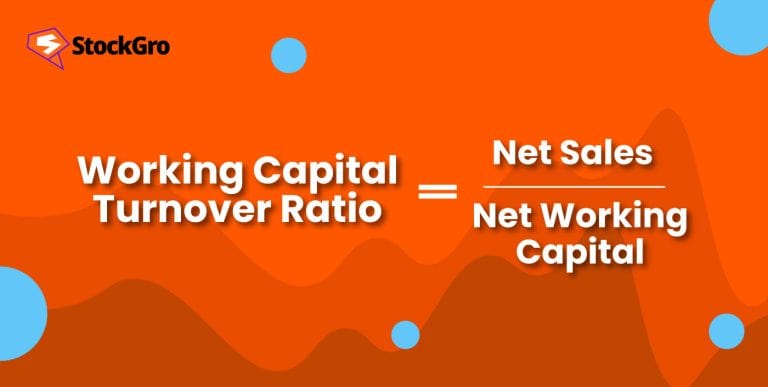
The financial year 2024 witnessed a remarkable period of initial public offerings (IPOs) in India, with the launch of seventy-five issues, the highest in two years. These IPOs raised an astounding ₹61,915 crore, much higher than the ₹52,116 crore collected last fiscal year.
As the union budget 2024 draws nearer, market experts expect further bullishness towards IPOs due to favourable fiscal policies and investor sentiments.
This article examines the budget’s impact on the IPO market and what investors may anticipate for future months.
The current state of the IPO market
India has become “the hottest share-sale market” in Asia with numerous IPOs, and the potential bumper crop of deals may break records as global investors seek opportunities to capitalise on accelerating growth in Asia’s third-largest economy.
Data compiled by Bloomberg show that more than $3.9 billion has been raised by Indian companies this year through initial public offers; over twice as much money as last year and higher than the total amounts sales in South Korea and Hong Kong combined.
Expected budget announcements impacting IPOs
The union budget is an important document that outlines the fiscal policies of the government and how it distributes resources among various sectors. It is crucial to investors as a landmark case which determines asset allocation and sector-specific investing.
Budget announcements have often had far-reaching consequences on market volatility and sectoral performance, necessitating constant vigilance by investors.
Indian IPO markets are expected to get a significant boost as a result of the forthcoming Budget announcements. Indeed, with the government’s spending on infrastructure and CAPEX, along with initiatives towards promoting start-ups and digitisation, Experts expect an enabling environment for companies to raise money in public offerings.
It is expected that the budget will encourage this trend further in the primary capital market. Moreover, the government’s focus on economic reforms such as corporate tax cuts and the Production Linked Incentive (PLI) scheme is likely to revive the private capex cycle thus leading to more firms tapping equity markets for growth capital.
This has also been a feature of historically high IPO returns that should boost investor confidence in an upbeat post-budget IPO market.
Also read: In Nirmala Sitharaman budget 2024: What it means for you
Potential sectors to benefit
There are specific sectors that are likely to gain more from the expected budget reforms:
- Technology: The tech industry, including start-ups with a focus on creative responses, may see an increase in IPO activities.
- Healthcare: Ongoing improvements and increased investments mean healthcare businesses could find the market conducive to going public.
- Renewable energy: Incentives by governments for clean energy projects may heighten the number of IPOs in the renewable energy sector.
Some companies have already planned their initial public offerings (IPO) for 2024 in anticipation of positive budget outcomes to optimise their valuations and attract investor attention. These include:
| Name | Open date | Close date | Price Range (₹) |
| Bansal Wire Industries Limited | 03-Jul-2024 | 05-Jul-2024 | 243 – 256 |
| Emcure Pharmaceuticals Limited | 03-Jul-2024 | 05-Jul-2024 | 960 – 1008 |
| Effwa Infra & Research Limited | 05-Jul-2024 | 09-Jul-2024 | 78 – 82 |
| Ganesh Green Bharat Limited | 05-Jul-2024 | 09-Jul-2024 | 181 – 190 |
| Ambey Laboratories Limited | 04-Jul-2024 | 08-Jul-2024 | 65 – 68 |
Source: NSE
You may also like: Understanding IPO valuation through relative and absolute methods
Things to keep in mind before investing in any IPO
Before you invest your money into an Initial Public Offer, here are several factors that you should consider:
- Company financials: Study the company’s past performance regarding its finances and consider things like profitability, debt levels, and revenues. Both the Draft Red Herring Prospectus (DRHP) and the company website supply such information.
- Promoters and management: Think about the background and experience of promoters and management team because they will influence how much it can grow.
- SWOT analysis: Always weigh a company’s strengths against any potential risks by conducting a SWOT analysis. Positive indicators include strong market positioning and efficient distribution networks.
- IPO valuation: To establish if it is overvalued, compare the IPO’s issue price with similar companies. It is always good to avoid investing in overpriced IPOs, as this enables one to get higher returns.
- Market conditions: Investing in shares that have been publicly offered may result in short-term gains depending on market sentiments, so give some thought to this.
Further reading: NFO or IPO – What do you think is the better option?
Bottomline
In India, favourable budgetary announcements and robust investor interest have created a fertile ground for a booming IPO market. Therefore, by treading cautiously through these dynamics and exploiting such opportunities, investors can position themselves favourably towards expected growth in the coming months.
FAQs
- Is it risky to buy an IPO?
Purchasing an IPO is risky because of the absence of past performance information and overpricing. Companies that are newly going public often in their growth’s fast pace, which might involve swings and unclear profitability. Furthermore, during an IPO launch, market conditions and investor sentiment may change substantially, leading to changes in stock performance. For one to invest in an IPO, he/she should look into these aspects, do thorough research, and understand the company’s fundamentals.
- Do most stocks drop after IPO?
Initial enthusiasm from investors who buy many shares at initial prices after going public usually fades, causing their prices to fall, resulting in a correction. The phenomenon is called “IPO pop,” where stocks typically go up initially but then start declining when the actual market sets in and early volumes of trade stabilise. It’s not always that way, though; some shares still perform highly in following such offerings. Ultimately, however, this will depend on the company’s fundamentals, the state of the market, and investor confidence generally speaking.
- What is the disadvantage of an IPO?
One major disadvantage of an initial public offer is the considerable cost incurred during its process. Such costs include underwriting commissions, legal services, accounting fees, and other regulatory conformity expenses borne by companies. Furthermore, it entails using massive time and resources, hence diverting focus from primary business activities. After IPOs, corporations have increasingly come under the spotlight and are compelled to meet short-term earnings estimates, which leads to executive short-termism, which is born out of fears over missing estimated quarterly earnings figures.
- Should you sell IPO shares immediately?
Whether you sell IPO shares right away depends on several factors. If the stock price rises rapidly on the first day, selling might secure instant gains. However, its prices can be highly volatile with significant fluctuations often experienced by IPO shares. On the other hand, long-term investors may wish to hold onto their shares as they anticipate future growth. It’s crucial to consider the basics of the company at stake, your investment strategy and market conditions before deciding to sell instantly.
- Do IPOs lose money?
Yes, IPOs do lose money sometimes. While some initial public offerings perform well with considerable returns others see their stock prices fall after going public. When there is a loss, however, it might be attributed to factors such as market condition or company performance and investor sentiment, among other factors that lead to shortcomings in this category of share trading. So before buying into any IPO, investors need to do their homework and evaluate risks because not every newly minted publicly traded organisation will succeed.
